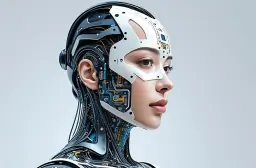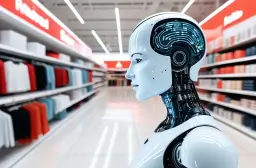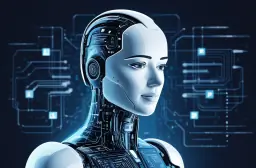The Future of AI: Transforming Tomorrow's Technology Today
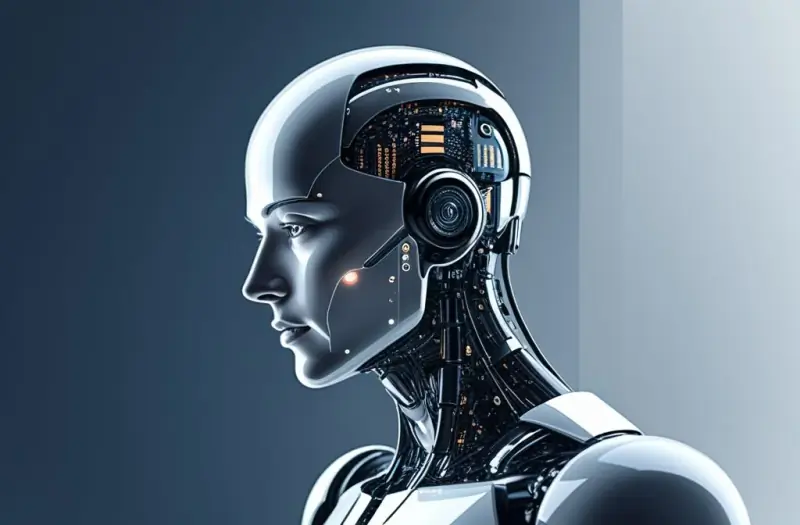
Table of Contents
Artificial Intelligence (AI) is no longer a concept of the future; it’s a reality shaping our present and fundamentally transforming how we interact with technology. As we stand on the brink of a new era, the future of AI promises even greater advancements that will redefine industries, enhance human capabilities, and create unprecedented opportunities. In this article, we explore the evolving landscape of AI, its potential impacts, and the trends that will shape tomorrow’s technology today.
The Current State of AI: A Foundation for Future Innovation
AI has come a long way since its inception, progressing from basic machine learning algorithms to advanced AI systems capable of complex decision-making. AI advancements have enabled machines to learn from data, recognize patterns, and make decisions with increasing accuracy. Today, AI is embedded in various applications, from virtual assistants like Siri and Alexa to self-driving cars and personalized healthcare.
- Machine Learning and Deep Learning: At the core of AI’s evolution are machine learning and deep learning technologies. These systems analyze vast amounts of data, enabling AI to learn and improve over time without human intervention.
- Natural Language Processing (NLP): NLP has made significant strides, allowing machines to understand and generate human language. This technology powers everything from chatbots to sophisticated AI-driven customer service platforms.
- Computer Vision: Another critical area of AI is computer vision, which enables machines to interpret and respond to visual data. Applications range from facial recognition to autonomous vehicles.
The rapid progress in these areas has set the stage for the future AI trends that will drive further innovation and application across industries.
AI in Healthcare: Revolutionizing Patient Care
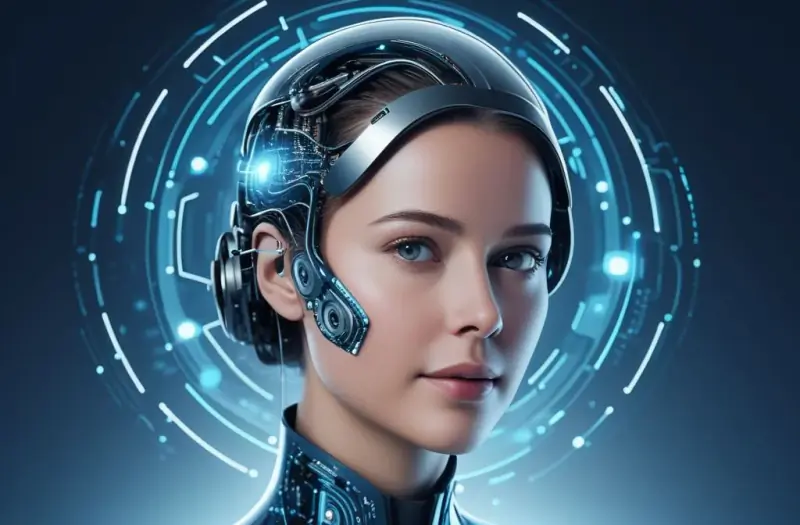
Healthcare is one of the sectors where AI is making the most significant impact, and its potential for future AI applications is vast. From diagnostics to personalized treatment plans, AI is revolutionizing the way healthcare is delivered.
Diagnostics and Early Detection
AI-powered tools are already outperforming human doctors in diagnosing certain conditions. For example, AI algorithms can analyze medical images to detect cancer at earlier stages, leading to better patient outcomes. In the future, we can expect AI to become an integral part of routine diagnostics, helping doctors identify diseases before symptoms even appear.
Personalized Medicine
The future of AI in healthcare also lies in personalized medicine. By analyzing an individual’s genetic makeup, lifestyle, and medical history, AI can recommend tailored treatment plans. This approach promises to improve the effectiveness of treatments and reduce the risk of adverse effects.
AI in Surgery
Robotic surgery, guided by AI, is another area poised for growth. These advanced systems can perform complex surgeries with precision, minimizing the risks associated with human error. As next-gen AI technologies continue to evolve, we can expect even more sophisticated surgical procedures that are less invasive and have faster recovery times.
AI in Business: Driving Efficiency and Innovation
Businesses across the globe are leveraging AI to streamline operations, improve decision-making, and foster innovation. The future of AI in business is bright, with AI-driven innovations set to transform industries from finance to retail.
Enhanced Decision-Making
AI-powered analytics tools can process large datasets and provide insights that would be impossible for humans to discern. This capability allows businesses to make data-driven decisions with greater confidence and speed, leading to better outcomes.
Automation of Routine Tasks
Automation is another significant benefit of AI in business. AI can handle repetitive tasks, such as data entry and customer support, freeing up human employees to focus on more strategic activities. In the future, AI will likely take on even more complex tasks, from managing supply chains to developing marketing strategies.
Innovation and Product Development
AI is also driving innovation in product development. By analyzing market trends and customer feedback, AI can help businesses create products that better meet consumer needs. As AI technology continues to evolve, we can expect even more innovative products and services that enhance the customer experience.
Ethical Considerations: Navigating the Challenges of AI
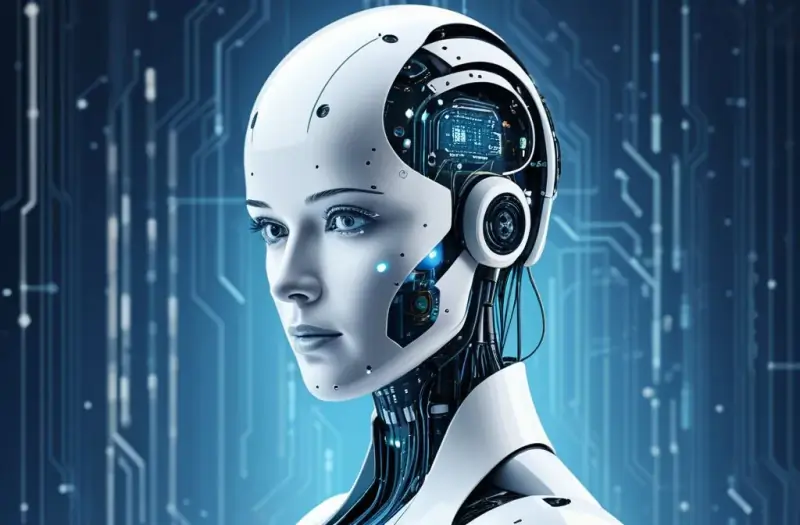
While the AI-driven future holds immense promise, it also presents significant ethical challenges that must be addressed. As AI systems become more autonomous and integrated into daily life, questions around privacy, bias, and accountability will become increasingly important.
Privacy Concerns
One of the primary concerns with AI is privacy. AI systems often require vast amounts of data to function effectively, raising questions about how this data is collected, stored, and used. Ensuring that AI systems respect user privacy will be crucial as the technology continues to evolve.
Addressing Bias in AI
AI systems are only as good as the data they are trained on. If this data contains biases, the AI will likely perpetuate these biases, leading to unfair outcomes. Developing strategies to identify and mitigate bias in AI systems will be essential to ensuring that AI benefits all segments of society.
Accountability and Transparency
As AI systems become more complex, understanding how they make decisions can be challenging. This lack of transparency can make it difficult to hold AI accountable when things go wrong. Developing frameworks for AI accountability and transparency will be critical in building trust in these systems.
The Future of AI: What to Expect
Looking ahead, the AI evolution will continue to accelerate, with several key trends shaping the future of technology.
AI and Human Augmentation
One of the most exciting areas of AI development is human augmentation. AI has the potential to enhance human capabilities, from improving cognitive function to assisting with physical tasks. In the future, we may see AI-powered exoskeletons that help people with disabilities regain mobility or AI-driven cognitive aids that enhance memory and learning.
AI in Education
AI is also set to transform education. Personalized learning platforms powered by AI can adapt to the needs of individual students, providing tailored instruction that maximizes learning outcomes. As AI continues to evolve, these platforms will become even more sophisticated, helping to close the education gap and provide equal opportunities for all students.
AI in the Environment
AI will play a crucial role in addressing environmental challenges. From optimizing energy use to predicting and mitigating the impacts of climate change, AI will be instrumental in creating a sustainable future. By analyzing vast amounts of environmental data, AI can help us make more informed decisions about how we manage natural resources and protect the planet.
AI and the Future of Work
The future of work will also be profoundly influenced by AI. While some jobs may be automated, AI will also create new opportunities for employment and entrepreneurship. As AI takes over routine tasks, humans will be free to focus on more creative and strategic activities, leading to a more fulfilling and productive workforce.
FAQs
What are the main challenges of AI in the future?
The main challenges include addressing ethical concerns such as privacy, bias, and accountability, as well as ensuring that AI systems are transparent and fair.
How will AI impact jobs in the future?
While AI may automate certain jobs, it will also create new opportunities for employment and innovation, allowing humans to focus on more creative and strategic tasks.
What are some potential applications of AI in healthcare?
Potential applications include early disease detection, personalized medicine, and AI-assisted surgery, all of which promise to improve patient outcomes and revolutionize healthcare delivery.
How can AI help address environmental challenges?
AI can optimize energy use, predict environmental changes, and support sustainable practices, helping us make more informed decisions about managing natural resources.
What role will AI play in education?
AI will transform education by providing personalized learning experiences, helping to close the education gap, and offering equal opportunities for all students.
Conclusion
As we look to the future, it is clear that AI will play a pivotal role in shaping the technologies and societies of tomorrow. From revolutionizing healthcare and business to addressing ethical challenges and environmental concerns, the future of AI is bright and full of possibilities. By embracing these advancements and addressing the challenges, we can ensure that AI drives positive change and creates a better world for future generations.
Key Takeaways
- AI is rapidly evolving, with significant advancements in machine learning, natural language processing, and computer vision.
- The future of AI in healthcare, business, and education is promising, with the potential to revolutionize these sectors.
- Ethical considerations, such as privacy, bias, and accountability, are critical to the responsible development of AI.
- AI will play a crucial role in addressing environmental challenges and creating a sustainable future.
- The future of work will be shaped by AI, offering new opportunities for creativity and innovation.
The future is bright, and AI is leading the way in transforming today’s technology into the solutions of tomorrow.
Popular Tags
ADS SPACE HERE
